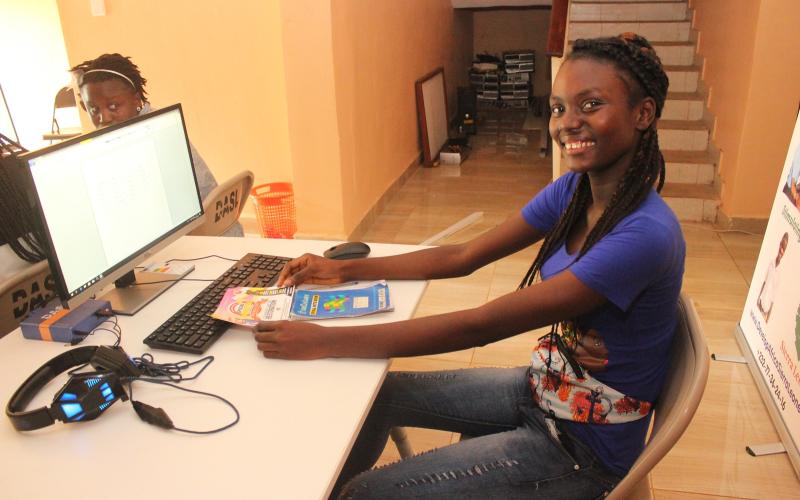
5G technology is the fifth generation of mobile technologies. It was introduced in late 2018. 5G has greater bandwidth than any other generations of cellular networks, the latency of 1-4ms and peak data rates can hit 20Gbps downlink and 10Gbps uplink per mobile base station,(De Looper, 2019) which means it takes seconds to store large data and transmit information. It uses radio waves to transmit and receive data between an antenna and your phone. It relies on higher radio frequencies than earlier mobile technology. These cannot travel as far as other frequencies so 5G networks need a denser network of base stations. Because of this 5G is better suited to densely populated urban areas where people are going online at the same time. (Hairsine, 2019) The 5G is said to help drive the internet of things (IoT) and big data. The IoT (Internet of things) is the next big digital revolution that would connect billions of devices and share data across the globe. (Brainbridge, 2019)
According to Ashton, the IoT is several network-connected sensors that will help you accomplish everything from navigation to photography, communication, and more. It will move data out of server centers and into “edge devices” such as Wi-Fi enabled appliances such as fridges, washing machines, and cars. As Ashton pointed out, the IoT is not just “the refrigerator talking to the toaster”, it is a way to facilitate countless increases in human productivity. In the early 2000s, developers knew that 3G and 4G would not be able to support the IoT. The latency for 4G is 40ms-60ms was too slow for real-time responses, lead to researchers developing the next generation (5G) of mobile networks. In 2008, NASA helped launch the Machine to Machine Intelligence(M2MI) corp to develop IoT and as well as the 5G technology needed to support it. Also in 2008, South Korea developed a 5G R&D program, while New York University founded the 5G-focused NYU WIRELESS in 2012. On December 1, 2018, South Korea became the first country to offer 5G followed by China, Japan, and other first world countries. Three South Korean carriers -KT, LG Uplus, and SK Telecom released 5G services in December 2018. (Brainbridge, 2019)
In Africa, Lesotho and South Africa are the only African countries where 5G is commercially available, but the services are extremely limited. In Lesotho, they use 5G in their central bank and mining company so far. In South Africa the data provider Rains offering 5G to a select group of customers in Johannesburg and Tshwane. A report on 5G in Africa by GSMA, a global organization for mobile operators, estimates that only seven African countries including South Africa, Nigeria, and Kenya, will have 5G by 2025. With 5G technology already being used in a few Africa countries and it has made a good impact. (Hairsine, 2019)
In terms of technology in Sierra Leone, only little has been accomplished through the use of 3G and 4G technology. At the center of Bio’s plans for Sierra Leone is in technology. President Maada Bio made a three-year partnership with the e-governance Academy of Estonia. E-governance will make citizens vote and pay taxes online, with 5G installed or available it will be accomplished faster, due to the amount of data it can hold and its greater bandwidth. The head of DSTI, David Moinina Sengeh who was part of a team at Estonia’s e-governance academy in which brought about DSTI’s core projects for Geographic information system, Financial Data Mapping, Education hub, Sierra Leone Drone corridor and so on which are under construction. (Campbell, 2019)The plans and projects which are yet to start will provide a platform for 5G to be used to accomplish them.
5G could also allow Sierra Leone to access faster and stable mobile internet without having to lay fiber-optic cables that deliver high-speed broadband. “So instead of investing in burying fiber cables in the ground African countries could invest in newer 5G and way to high-speed connectivity,” says Matuluko. (Hairsine, 2019)The 5G will benefit Sierra Leone in fields such as Health, remote education and it will enable live streaming a virtual reality classroom.
In conclusion, the results of this study provide insights into why Sierra Leone as a country should bother about 5G technology. The 5G will soon become the eye of the digital economy which will open up multiple sectors for sustainable development in Sierra Leone and the world.
References
De Looper C. (2020). What is 5G? The next-generation network explained. Retrieved from https://digitaltrends.com/mobile/what-is-5G
Hairsine K. (2019). Is Africa ready for 5G? Retrieved from https://dw.com/en/is-africa-ready-for-5g/a-51474261
Brainbridge (2019). From 1G to 5G: a brief history of the evolution of mobile standards. Retrieved from https://brainbridge.be/news/from-1g-to-5g-a-brief-history-of-the-evolution-of-mobile-standards
Campbell J. (2019). Behind Sierra Leone’s Ambitious, Tech-Driven Development plan. Retrieved from https://cfr.org/blog/behind-sierra-leones-ambitious-tech-driven-development-plan

By Joy Deanna Laggah
Information Technology (IT)
Institute of Public Administration and Management
Background
From Joshua Kamanda, USA (Competition Organizer and Philanthropist), June 3, 2020
This paper won the first prize in the Joshua And Joshuana’s BBQ Research Paper Competition.
Joy Deana Laggah - an IT major student from IPAM scored the highest average grade of 85.5%. She won a cash prize of $300.00.
All those who participated were awarded a certificate of participation each. Prizes were distributed in the first week of June 2020.
We had participation from students of the following Universities/Institutions and I’m pleased to announce the results:
- IPAM
- FBC
- Njala University
- Limkokwing
- University of Makeni
- Institute of Technology (IBSA)
Many thanks to members of the Sierra Leoneans in Technology (SLINT) organization who tirelessly helped out with grading!
The goal of this exercise was to keep some of our youths back home more engaged in the face of covid19 and other political tensions in the country but to also, more importantly, challenge their critical thinking skills.
I will continue to promote and support the learning of Science, Technology, Engineering and Mathematics (STEM) as I have always done for the past 10+ years.

